This post is also available in: Italian
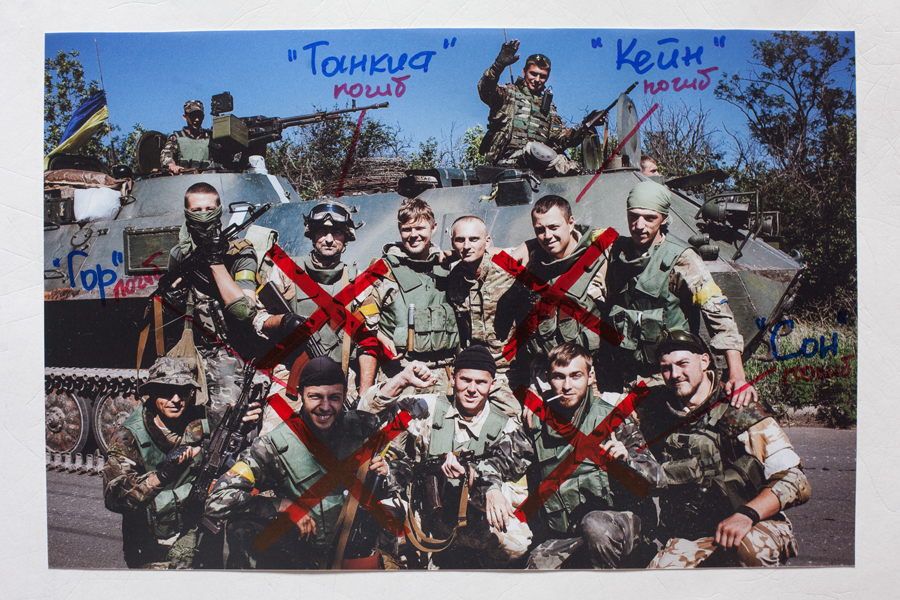
Original photo was taken on July 20, 2014 near Artemovsk, Donetsk region, Ukraine.
Minsk based photographer Alexander Vasukovich popped up on my radar with a project on domestic violence in Belarus. I was following his work called One out of every three women. The project is a profound and empathetic portrayal of the issue and is centered around a women’s shelter in Minsk. It would have made more sense if this work had opened a conversation in Russia, where local lawmakers have recently given a green light to the domestic abuse by passing a bill that decriminalizes it to a misdemeanor.
However, it was another work of Alexander’s that stressed the mediasphere. In 2016, his work Commemorative Photo won first place in the Conflict category of the DirectLook competition, and was exhibited at the Andrei Sakharov center in Moscow. A group of pro-Kremlin activists attacked and sprayed the images with red paint. A can that was later found in the center was labeled “This is the blood of the Donbass children killed by the Ukrainian army”.
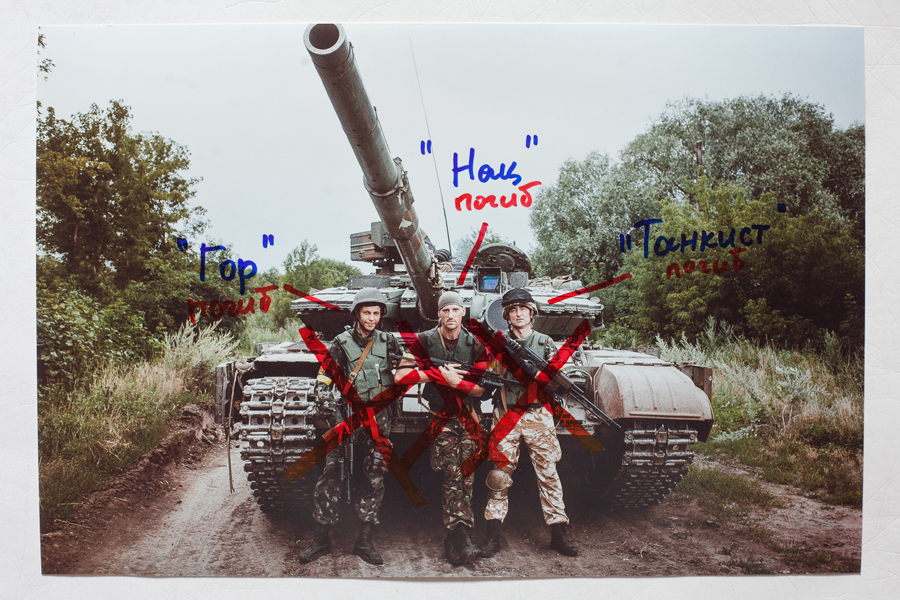
Original photo was taken on July 21, 2014 near Tripol’e village, Donetsk region, Ukraine.
Alexander’s winning project captured the members of Donbass Batallion, Ukrainians who volunteered to go to the frontline to fight against pro-Russian separatists.
People with various backgrounds: designers, businessmen, lawyers, factory workers, etc. came from all over Ukraine, and many were former participants of the Euromaidan movement in Kiev. The volunteer battalions were an important aspect of the Ukrainian war effort in eastern Ukraine and security elsewhere in the country. Approximately 50 battalions played a role in Ukraine’s territorial defense.
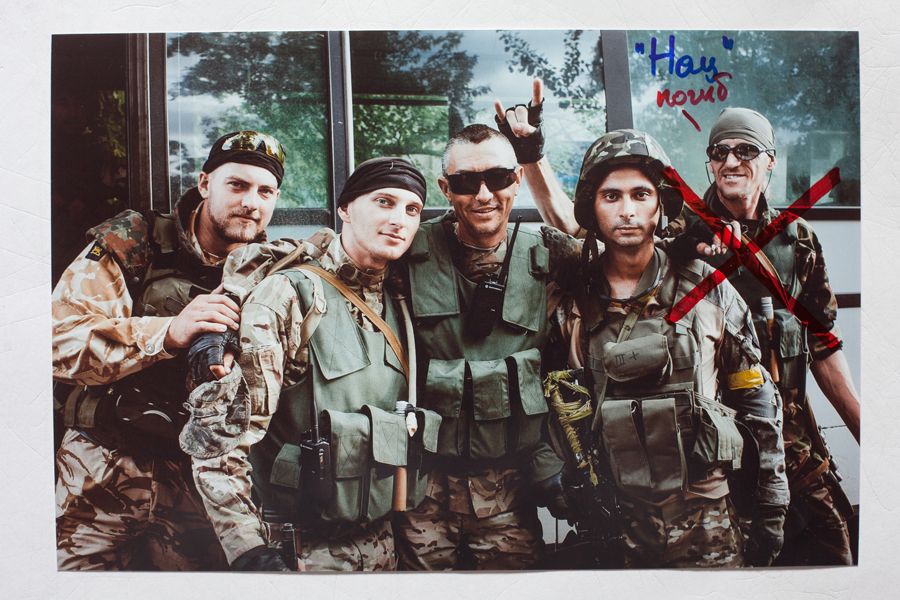
Original photo was taken on July 20, 2014 near Artemovsk, Donetsk region, Ukraine.
Having spent months with the protesters at Euromaidan, Vasukovich admits that he was consumed by the ugly beauty of the conflict itself.
“What started as a cheerful carnival resulted in gunfire and death. After Maidan I felt like I needed more context, I wanted to engage myself in a more thoughtful dialogue with these people,” he said.
“That is why I went to eastern Ukraine – to better understand the situation there, to interview these people and to learn what happens in a man’s head when he decides to go to war.”
What began as a straightforward look at the everyday life of newly minted soldiers, transformed into a quite different story: Alexander was often asked to take commemorative pictures of the members of the battalion.
“I would just take the pictures when the guys asked me and send it to their friends and family”, he said. “It is through them I later learned whom to cross from the images…”
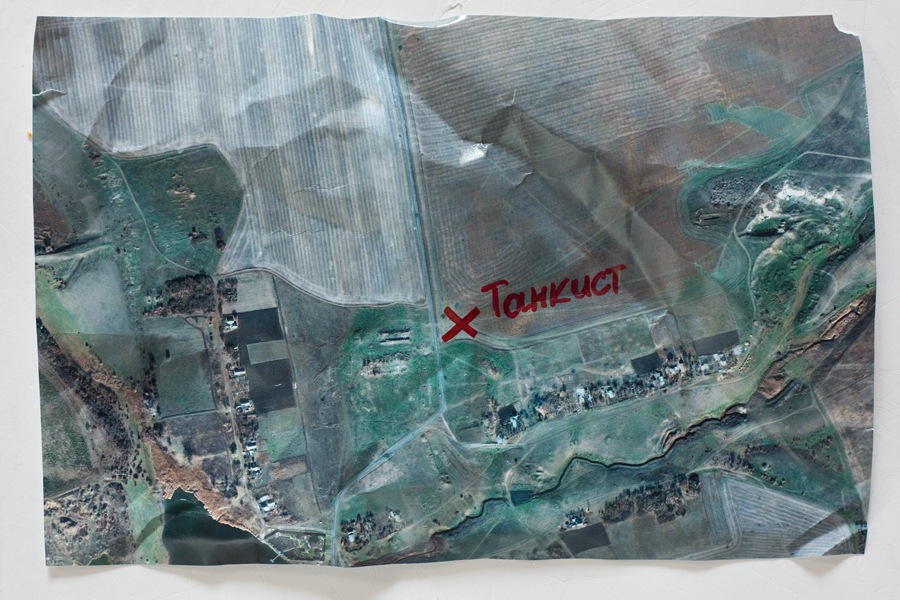
“Among the volunteers, there were just a few with military training. Mostly, they would just have had a quick training of around 2-3 weeks at the National Guard base before being sent to the front-line,” Vasukovich commented.
In one of Alexander’s interviews, a driver nicknamed “Tankist (Tankman)” describes himself as a nationalist, saying that a “nationalist is a patriot who is ready to take action”. He was secretly going to Euromaidan and would watch the news from home. His wife cried when he decided to leave. Alexander sent his picture to their daughter, from whom he later learned that he had been killed.
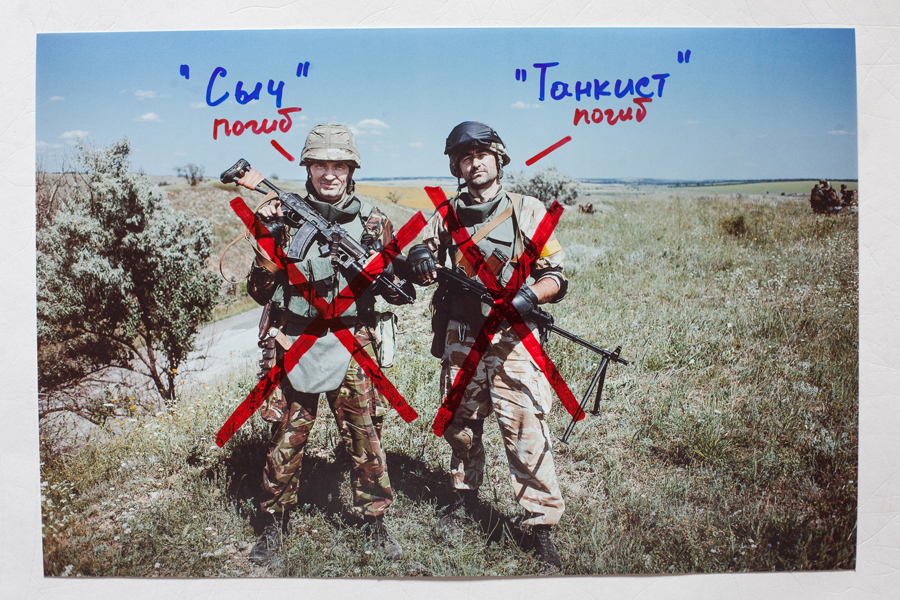
Original photo was taken on July 20, 2014 near Popasnaya, Lugansk region, Ukraine.
Alexander admits that he felt inspired by the volunteers. “They were full of the romantic idea of war. They went to fight against evil separatists and to defend their motherland. For me, the side of the conflict was not important. War only brings death and destruction,” he said.
Unfortunately, the answers to the Alexander’s questions could be copy-pasted from any conflict. It is once again a story of people becoming an instrument in political, economical and even criminal affairs. The absence of social lifts, injustice, and corruption. Just add here a good patriotic sentiment, anger, despair, propaganda, and sprinkle with a little romance. “Thanks to propaganda, people hate each other sometimes for basically no good reason” Vasukovich said.
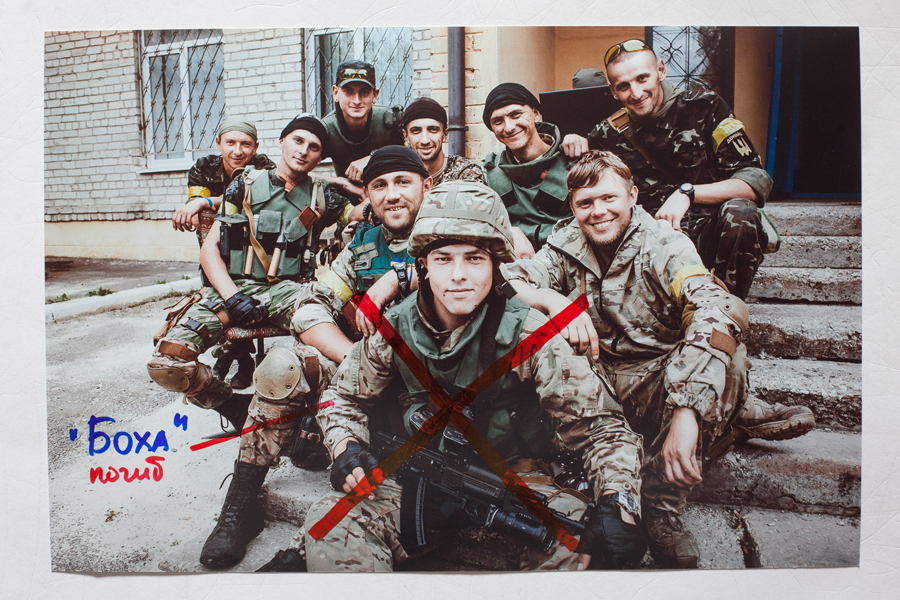
Original photo was taken on July 18, 2014 in Artemovsk, Donetsk region, Ukraine.
“We live in the reality where we have become totally numb to the number of deaths. Nevertheless, when you are looking into a face of a dead man and know the place where he was killed, you start to feel something,” he said. “By breaching the limits of representation, especially in the conflict stories, we might find new ways to articulate this tragic world that we live in…”
The project was declared pro-Nazi by some Russian media and Alexander is currently under investigation for extremism.
